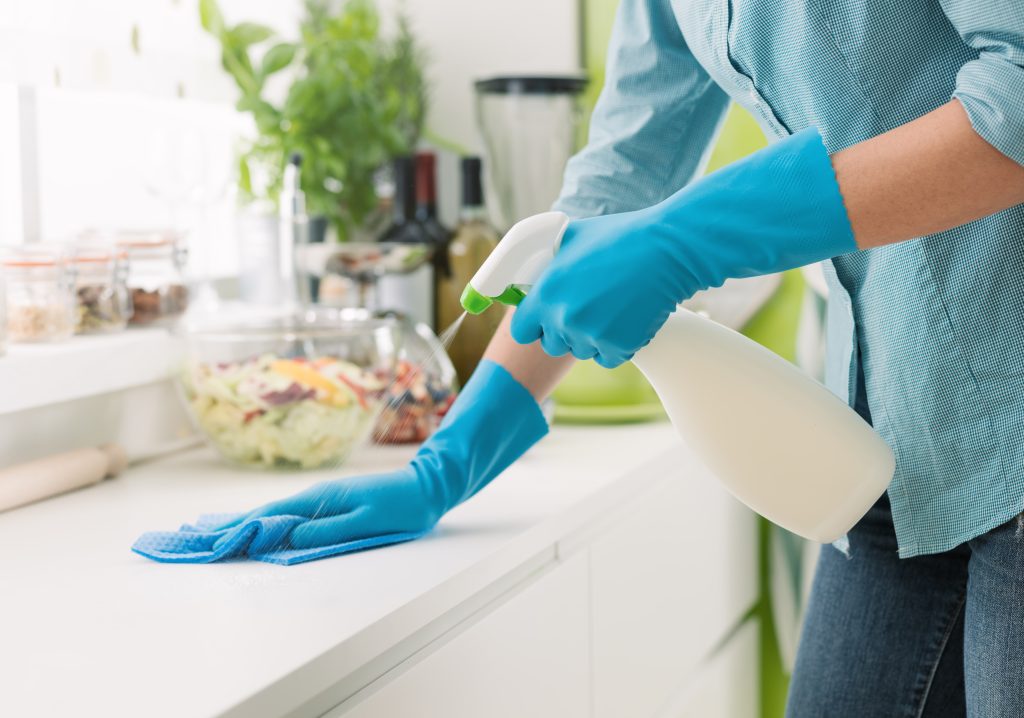Natural stone cleaning surfaces are a luxurious addition to any home, but they do require special care. Using the wrong cleaning products or techniques can damage them.
When spills occur, make sure to blot them instead of wiping. This will keep the liquid from being absorbed by the stone.
Avoid cleaners that are labeled as “multi-purpose.” Vinegar can cause a chemical reaction on acid sensitive natural stones.
Clean the surface as soon as you notice a stain
Spills and moisture left on natural stone can create a hard-to-remove film. To avoid this, keep a mop or cloth dry or blot a spill rather than wiping. Wiping will spread the liquid to a larger area and may cause additional damage.
A gentle cleaning solution of neutral cleaner, stone soap, or mild dishwashing detergent is a good choice for most types of regular staining. For a heavy dirt build-up or etching, there are alkaline-based cleaning products that can be used sparingly and with care.
Oil-based stains darken the stone and normally must be chemically dissolved so that the source can be flushed or rinsed away. For organic stains such as coffee, tea, food, or ink from kids’ art projects, try using 12 percent hydrogen peroxide with a few drops of ammonia. Paint can be stripped with lacquer thinner or scraped off carefully with a razor blade. For deep etching or serious color problems, consult a stone care professional.
Avoid acidic cleaners
Stone surfaces are sensitive to acidic cleaners which break down and dull the surface. They also cause etching, which is permanent dull spots that damage the shine of your natural stone surfaces. Using a mild cleaner specifically designed for your stone will prevent this damage.
Avoid using products labeled as “multi-purpose” or with a pH below 7. These types of cleaning solutions can leave damaging residues on your stone.
When you do notice a stain, don’t scrub it. This can actually increase the amount of damage to your stone’s surface. Instead, rinse the area and use a soft cloth to wipe away any remaining staining material. Also, don’t use abrasive materials like steel wool or scouring pads. They can scratch the surface of your stone and expose the porous layer below. These scratches can create an inviting place for mold, mildew and stains to grow. This can lead to a host of other issues. The best way to avoid these problems is to clean your stone regularly.
Don’t use abrasive cleaners
Abrasive cleaners such as scouring powders and pads or course steel wool can scratch or etch soft natural stone surfaces. This can dull the surface and remove protective seals, exposing the stone to damage, discoloration and other problems.
A clean rag mop and mild liquid dishwashing detergent with warm water is usually all that’s needed for cleaning natural stone surfaces. However, it’s important to follow the manufacturer’s recommendations for cleaning and avoid excessive concentrations of cleaner or soap.
In wet areas such as showers and countertops, a non-acidic soap scum remover is often required to minimize buildup. Also, mats and area rugs placed in entry areas will help to catch sand, dirt and other debris that can scratch the stone floor or countertop. Finally, placing coasters or trivets under glasses and dishes can further prevent damage to the natural stone. These simple steps will go a long way towards keeping your natural stone looking beautiful and new for years to come.
Don’t apply layers of wax
Unless your natural stone has been treated with an impregnating sealer, the surface should not be coated with additional layers of wax. These can trap moisture on the stone and cause damage, especially in wet areas like showers. Wax can also build up and leave a sticky residue that is difficult to remove.
Homeowners often make cleaning mistakes that can cause damage to their natural stone surfaces. They may not understand the chemistry of cleaners or the physical characteristics of different stones. This can lead to them using an acidic cleaner, for example.
This can dull or etch the stone. Many people believe that vinegar is a great cleaner for natural stone but this is not true. Vinegar is an acid and can damage or dull marble, limestone, travertine and onyx surfaces. This is because the acids in vinegar will cause a chemical reaction with the calcium carbonate in the stone. This will produce a dull mark and open the pores in the stone, which can eventually lead to pitting or cracking.



